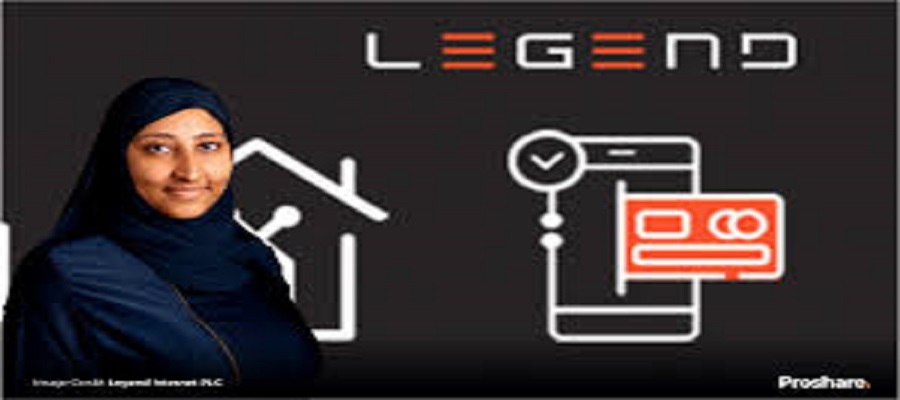Telecom
Ericsson Leading the Charge for Girls in ICT

Around the world, more than 377,000 girls and young women have participated in over 11,400 International Girls in ICT Day celebrations in 171 countries over the past ten years.

Governments, national Information and Communications Technology (ICT) regulatory authorities, ICT companies, academic institutions, and non-governmental organisations (NGOs) across the world have all been encouraged to join the movement, however as we celebrate our achievements and efforts in encouraging young girls to go into science, technology, engineering, arts and mathematics (STEAM) related fields, there is still much to be done by organizations everywhere.
The gender gap in STEAM is striking; in higher education, only 35 percent of all students enrolled in STEAM-related fields are females. More worrying, is that female enrolment is particularly low in ICT (3 percent).
In Europe, for example, only 29 of 1,000 female graduates had a degree in computing in 2015. Research also shows that the gender gap starts as young as lower secondary school, where girls are less likely to select technology and science-related subjects. This trend continues through college, and the rest of their careers.
Having many more young girls and women join ICT as a career is important not only because diverse and inclusive teams lead to better working environments but also because it impacts our productivity and profitability. In fact, a recent McKinsey study of 1,000 companies across 12 countries found that firms that had taken steps to improve gender equality were more profitable than national averages.
Currently, there are simply not enough young women willing to take up STEAM studies as a choice for higher education or career option.
Governments across the region have taken steps to address this and, in Nigeria, the government has also put in place the National Policy on Science and Technology Education with its implementation guideline for repositioning and delivering quality Science and technology education in the country for global competitiveness.
Sean Cryan, Country Manager of Ericsson Nigeria said: “The importance of an equitable workforce across various sectors cannot be overstated, and in Nigeria, ICT plays an integral role in the nation’s development; hence our continued support through programs aimed at developing skills of women.
“In the past six years, Ericsson has held five initiatives for Girls in ICT Day with much success. The events welcomed girls from all age ranges and were held in collaboration with local state schools as well as with the Swedish embassy in Nigeria. Ericsson remains committed to the growth of the sector and we strongly believe there is a need to drive participation of more women in the society.”
Last year, keeping in mind the fact that many parents were and continue to be home-schooling their children, Ericsson shared some learning materials, in the hope that these would help provide children and parents with some useful insights into coding and computing; science and technology.
While these programs continue to be ongoing, this year Ericsson has also rallied employees to go the extra mile by focusing on their own homes and teaching their own daughters and young relatives about the potential of STEAM and careers in ICT through the Be a Teacher initiative, where they were provided with teaching materials and toolkits.
In addition, The Share our Story program also saw Ericsson host virtual sessions to bring information and inspiration to girls and their families to explore the ICT industry and a potential career path within it.
Another great project worth mentioning is Technovation, a global tech competition for girls. Spread over 28 countries, almost 100 Ericsson employees are currently mentoring girls between the ages of 10 and 18 years.
While there is still work to be done, efforts are well underway and the future of STEAM studies as a career choice is truly exciting. Research shows that more than 65% of our students will work in jobs that don’t exist today.
By engaging participants in Girls in ICT Day, we hope to help prepare for that future, encouraging more and more girls to consider careers in ICT and simultaneously expanding our work internally to engage and collaborate for gender parity and equality overall.
Telecom
Tribunal Upholds FCCPC’s $220m Fine against Meta, WhatsApp
Competition and Consumer Protection Tribunal has upheld a $220 million fine imposed by the Federal Competition and Consumer Protection Commission (FCCPC) on Meta Platforms Inc. and WhatsApp LLC for data privacy violations in Nigeria.

The Tribunal also awarded $35,000 in investigative costs to the country’s Federal Competition and Consumer Protection Commission .
In a statement issued by the FCCPC, the Tribunal delivered its judgment in the appeal filed by Meta Platforms Incorporated (Facebook) and WhatsApp LLC against the Federal Competition and Consumer Protection Commission (FCCPC), affirming the Commission’s authority and ruling in favour of its actions on nearly all contested issues.
According to the statement by the FCCPC, “The Tribunal specifically determined that the Commission adhered to prevailing laws, fulfilled its mandate, and exercised its powers by the 1999 Constitution (as amended).
“It ruled that the multiple actions by WhatsApp and Meta, for which the Commission made findings of violations, were correctly identified, and that the Commission did not err in making those findings.”
The statement revealed that WhatsApp and Meta’s legal team was led by Professor Gbolahan Elias (SAN), while the FCCPC was represented by Babatunde Irukera.
It added that both legal teams presented their final arguments on behalf of their respective clients on January 28, 2025.
“The FCCPC had on July on July 19, 2024, issued a Final Order imposing a $220 million administrative penalty after concluding that the companies engaged in discriminatory and exploitative practices against Nigerian consumers, the investigation started in 2020.
“The case arose from a 38-month joint investigation initiated by the FCCPC and the Nigeria Data Protection Commission (NDPC) into the conduct, privacy practices, and consumer data policies of Meta Platforms and WhatsApp.
“Dissatisfied with the Order last year, Meta and WhatsApp appealed to the Tribunal, challenging both the legal basis and the findings of the Commission,” FCCPC said.
The Tribunal upheld the FCCPC’s authority and investigative procedures in Meta and WhatsApp’s appeal, resolving most of the contested issues in the Commission’s favour.
It confirmed that the FCCPC acted within its constitutional and statutory mandate, particularly regarding fair hearing, data protection, and consumer rights.
While it dismissed the majority of the appellants’ objections, it set aside one specific order (Order 7) for lacking sufficient legal basis.
While expressing satisfaction with the judgment, Tunji Bello, executive vice chairman/CEO, commended the Commission’s legal team for their exceptional diligence and forensic expertise in assembling evidence and presenting their case.
He reaffirmed the FCCPC’s unwavering commitment not only to protecting the rights of Nigerian consumers but also to promoting fair business practices in line with the FCCPA (2018) and the Renewed Hope Agenda of the Nigerian government.
Telecom
Legend Internet Plc Makes History as First Indigenous Telecom Firm on NGX

Nigerian Exchange Limited (NGX), has made history with the listing of Legend Internet Service Plc as the first company in its Telecoms sector and the first company to be listed this year.

Legend’s N2 billion ordinary shares, with a par value of 50 kobo each, were listed at N5.64 per share.
Dr Umaru Kwairanga, chairman of NGX Group, who welcomed Legend’s board and management, commended the company for its successful listing on the Exchange
He highlighted that listing signifies an elevated commitment to corporate governance and provides opportunities to leverage the Exchange’s diverse asset classes for capital raising.
He stated, “As we celebrate this listing, with many more in the pipeline, I commend the management of Legend Internet Plc for this remarkable milestone.
“This bold step demonstrates confidence in your business model and growth vision.
It also marks the formal emergence of a broadband service as a distinct sub-sector on our Exchange.
Legend has evolved from a focused digital network provider to a diversified technology player, achieving significant advancements in broadband infrastructure development and data services.
We anticipate continued growth in the future.
“We are still bringing many companies on board the NGX, including Dangote, NNPC and others.
“As Africa’s leading exchange, NGX has consistently championed innovation, transparency and sustainable value creation through our investment in cutting-edge infrastructure and a comprehensive range of product offerings, spanning equities, bonds, ETFs and derivatives
Speaking at the Facts Behind the Listing Ceremony, Dr Ladi Bada, chairman, Legend emphasised that the company, as the first indigenous telecommunications company on NGX, has substantial value to offer the market.
Bada encouraged Nigerians to embrace the broadband industry, recognizing it as the fastest-growing sector globally.
He noted that the company had been instrumental in laying fiber optic cables connecting 250 homes in the Suleja and Abuja environs.
He expressed optimism that the Exchange would serve as a catalyst to replicate such commendable projects across other regions of Nigeria.
“We are here to create an enabling digital infrastructure to achieve the projected one-trillion dollar economy.
“On this special day, Legend Internet takes a bold step forward, not just for itself, but for the broader ecosystem of technology, infrastructure, and enterprise in Nigeria.
“As we begin this exciting new chapter as a publicly listed company, we do so with humility and boldness.
We remain committed to continuous innovation, expanding our reach, and delivering value to shareholders and society
“A listing on the Nigerian Exchange is more than a financial event. It is a signal and a declaration that a business is ready to be held to the highest standards of governance, performance, and public trust,” he said
Providing insights into the company’s development, Ms Aisha Abdulaziz, chief executive officer of Legend Internet Plc, stated that the company had evolved from an internet service provider to a comprehensive digital service provider.
Abdulaziz noted that with broadband penetration in Nigeria being less than one per cent, Legend Internet was strategically positioned to deepen access
She affirmed the company’s commitment to taking Nigeria’s digital economy to the next level
“When we started Legend, we weren’t just building an internet company; we were building a movement
A movement fueled by the belief that every Nigerian deserves access to premium, reliable, and high-speed internet, regardless of their location or occupation
“From late nights in our first office to laying fiber across Abuja, to launching products that made people’s lives easier and faster, our journey has always been about connections
“Connecting people to opportunities, connecting homes to entertainment, connecting Nigeria to the digital future it deserves. Our journey has always been about a better way to live.
“This listing is a symbol of our commitment to transparency, sustainable growth, and the kind of excellence that outlives hype.
“Legend’s primary focus now is on unlocking digital value at the household level,” she said.
Mr Jude Chiemeka, chief executive officer of NGX, congratulated the company for making the strategic decision to list.
Mr Chiemeka noted that Legend’s listing on NGX now brings the total number of listed securities to 322
Also, Mr Temi Popoola, chief executive officer of the Nigerian Exchange Group, encouraged the investing public to support the newly listed company.
Telecom
Digital Realty Expands ServiceFabric to Nigeria, Enhancing Global Interconnectivity

Digital Realty, the leading global provider of cloud- and carrier-neutral data center, colocation, and interconnection solutions, announced today the expansion of its interconnection platform, ServiceFabric®, to Nigeria.

The platform will be natively deployed at Digital Realty’s LOS1 and LOS2 facilities in Lagos, ensuring low-latency, high-performance connectivity for enterprises in the region and beyond.
This strategic expansion reinforces Digital Realty’s commitment to enabling seamless global interconnectivity for businesses, providing enterprise customers in Nigeria with the ability to connect whenever, wherever, and to whoever they need to.
The presence of ServiceFabric® in Lagos will support the growing demand for hybrid IT and multi-cloud connectivity, empowering businesses with a secure, software-defined interconnection platform.
As part of Digital Realty’s broader vision to support digital transformation across Africa, this deployment is a significant step in an ongoing ServiceFabric® expansion across the continent. Future rollouts are planned to bring additional access points across Africa, enabling enterprises to interconnect with partners, clouds, and networks seamlessly.
The timing of this deployment aligns with a surge in digital activity across Africa. The continent’s digital transformation market is projected to grow from approximately USD 23 billion in 2024 to USD 46 billion by 2029, at a compound annual growth rate (CAGR) of 15% , underscoring the accelerating demand for advanced connectivity solutions.
In Nigeria specifically, national initiatives such as the 3 Million Technical Talent (3MTT) program and the Broadband Alliance reflect strong government support for enhancing digital skills and infrastructure – further highlighting the country’s critical role in Africa’s digital future.
“The launch of ServiceFabric® in Nigeria marks a significant milestone in our mission to build a truly globally connected digital economy,” said Chris Sharp, Chief Technology Officer, Digital Realty. “By deploying ServiceFabric® natively in our Lagos facilities, we are ensuring businesses in Nigeria have access to the same best-in-class interconnection capabilities as enterprises in major digital hubs around the world.”
Explaining further, Engineer Ikechukwu Nnamani, Managing Director, Digital Realty Nigeria, stated the launch of ServiceFabric® in Nigeria is a direct response to the call by the Federal Government towards availability of global infrastructure in the country thereby enhancing localization of content and bringing global platforms into the Nigerian ICT ecosystem.
By a direct connectivity into the Internet Exchange Point of Nigeria (IXPN), the IXPN will be able to peer with other global exchanges thereby enhancing the quality of service delivery to Nigerian companies and service providers.
ServiceFabric® is already available natively in more than 160 Digital Realty facilities and over 500 third-party facilities through strategic partnerships, including with Megaport and the recent collaboration with Console Connect. These partnerships help extend the reach of the platform, providing enterprises with a truly global, interconnected ecosystem.
ServiceFabric® is a next-generation interconnection solution designed to simplify and streamline connectivity between enterprises, cloud providers, and network partners. With integration points to Digital Realty’s Private AI Exchange (AIPx), it also paves the way for secure and efficient AI workload connectivity, further future-proofing enterprise infrastructure.
Key benefits include:
- Seamless multi-cloud connectivity – direct, secure access to major cloud providers with access to more than 280 cloud on-ramps globally, ensuring optimized performance and security.
- Global reach, local performance – enterprises in Nigeria can connect with business partners and digital services across PlatformDIGITAL®, Digital Realty’s global data center platform consisting of 300+ facilities across 50+ cities in 25+ countries.
- Scalability & flexibility – businesses can scale their interconnection needs on demand, adapting to changing IT and network requirements.
- Enhanced security & reliability – a private, software-defined platform that reduces exposure to public internet risks and improves network resiliency.

 Telecom2 days ago
Telecom2 days agoMTN Appoints Egerton Idehen as Chief Broadband Officer

 General News2 days ago
General News2 days agoUBA Marks 75 Years of Excellence at 65th AGM

 Telecom2 days ago
Telecom2 days agoMTN Group Suffers Cyberattack

 E-Business3 days ago
E-Business3 days agoALX Nigeria Launches 2025 Ventures Incubator, Premieres Pan-African “Do Hard Things” Finale

 Telecom2 days ago
Telecom2 days agoMTN Foundation Launches Skills Academy to Bridge Nigeria’s Digital Skills Gap

 Telecom2 days ago
Telecom2 days agoDigital Realty Expands ServiceFabric to Nigeria, Enhancing Global Interconnectivity

 Telecom2 days ago
Telecom2 days agoLegend Internet Plc Makes History as First Indigenous Telecom Firm on NGX
- Telecom2 days ago
Tribunal Upholds FCCPC’s $220m Fine against Meta, WhatsApp
























